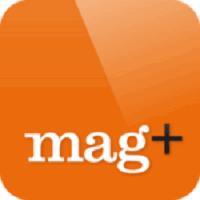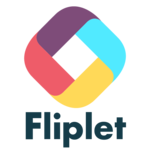Description

Frontegg

Mag+ Application Development
Comprehensive Overview: Frontegg vs Mag+ Application Development
Frontegg
a) Primary Functions and Target Markets
Frontegg is a SaaS company that provides an end-to-end user management infrastructure aimed at B2B applications. Its primary functions include authentication, user administration, and authorization, supporting both classic applications and modern microservices architecture. Frontegg provides embeddable components and APIs for user management, enabling companies to integrate features like multi-factor authentication, social logins, and policy management without building them from scratch. The target market primarily consists of developers and product teams in tech companies looking to expediently implement core authentication and user management features in their B2B platforms.
b) Market Share and User Base
While precise market share figures are difficult to ascertain, Frontegg is positioned in the growing SaaS authentication and user management space, offering solutions that compete with players like Auth0 and Okta. The user base consists principally of small to medium enterprises and development teams seeking efficient, customizable user management solutions.
c) Key Differentiating Factors
- Comprehensive Feature Set: Frontegg offers a wide range of pre-built components and APIs that streamline the user management and authentication processes.
- B2B Focus: Specifically tailored for commercial applications, Frontegg provides enterprise-grade features right out of the box.
- Developer-Centric: Its offerings are designed to be developer-friendly, ensuring easy integration and implementation through detailed documentation and support.
Mag+ Application Development
a) Primary Functions and Target Markets
Mag+ is a digital publishing platform that allows users to create, design, and publish interactive content for mobile devices and tablets. It serves publishers, content creators, and businesses wanting to enhance their digital communication strategies with interactive applications. Industries such as magazine publishing, corporate communication, and marketing make prominent use of Mag+'s capabilities to produce rich media content without the need for extensive programming skills.
b) Market Share and User Base
The market for digital publishing solutions is niche but expanding, with Mag+ holding a significant position in helping traditional publishers transition to digital formats. Its user base includes established publishers, marketing agencies, and enterprises that produce high volumes of digital content.
c) Key Differentiating Factors
- Ease of Use: Mag+ provides a platform that allows non-technical users to create and publish interactive content efficiently.
- Rich Media Integration: The ability to include multimedia such as videos, audio, and animations elevates the interactivity and engagement levels of published content.
- Cross-Platform Publishing: Supports publishing to multiple device platforms simultaneously, which is crucial for content reach and accessibility.
WebRatio
a) Primary Functions and Target Markets
WebRatio offers tools for model-driven development of enterprise web and mobile applications. The platform leverages low-code methodologies to accelerate the application development lifecycle, catering primarily to business analysts, developers, and IT departments within medium to large enterprises. It focuses on delivering enterprise-grade solutions with integration capabilities for complex business environments.
b) Market Share and User Base
In the increasingly popular low-code development sphere, WebRatio commands a specialized segment of the market focused on model-driven approaches to application creation. Its user base is comprised mostly of large enterprises and businesses in need of robust, scalable applications with significant integration requirements.
c) Key Differentiating Factors
- Model-Driven Approach: Unlike purely low-code platforms, WebRatio emphasizes a model-driven development process, providing a higher abstraction level suited for complex applications.
- Enterprise Focus: Offers features and scalability appropriate for large, complex systems typical of enterprise environments.
- Integration Capabilities: Strong emphasis on integration with existing enterprise systems and processes, making it suitable for businesses with established IT ecosystems.
Comparative Analysis
- Market Focus: Frontegg caters to developers in the tech industry seeking user management solutions; Mag+ targets content creators in digital publishing; WebRatio appeals to enterprise IT departments needing comprehensive application development solutions.
- Primary Differentiator: Frontegg emphasizes authentication and user management, Mag+ focuses on content interactivity and ease of use, and WebRatio provides an enterprise-functional, model-driven development approach.
- Ease of Use: Mag+ is geared towards creative professionals with limited technical skills, Frontegg towards developer teams, and WebRatio towards business and IT professionals familiar with enterprise-level application requirements. Each platform's design aligns with the technical proficiency of its target users.
In conclusion, although these platforms occupy the broader sphere of application and content development, their uniqueness lies in specialized target markets and core functionalities tailored towards specific industry needs.
Contact Info

Year founded :
2019
+1 234-567-8992
Not Available
United States
http://www.linkedin.com/company/frontegg

Year founded :
Not Available
Not Available
Not Available
Not Available
Not Available
Feature Similarity Breakdown: Frontegg, Mag+ Application Development
a) Core Features in Common
-
User Authentication & Management:
- Frontegg: Provides extensive user authentication features including single sign-on (SSO), multi-factor authentication (MFA), and social logins.
- Mag+ Application Development: Typically focuses more on content distribution and app management but does offer basic user management features.
- WebRatio: Includes user authentication and management as part of its web and mobile application development platform.
-
Development Tools:
- All three platforms provide development tools that aid in the creation, testing, and deployment of applications, although Frontegg’s tools are primarily focused on adding user management capabilities to existing applications.
-
Customization Options:
- Each platform offers various levels of customization to tailor applications to the specific needs of users, be it in design, functionality, or business logic.
-
Integration Capabilities:
- They all support integrations with third-party services to extend the functionalities of the applications built using their platforms. Frontegg, in particular, focuses on integration with authentication providers.
b) User Interface Comparison
-
Frontegg: The user interface is typically geared towards developers with a focus on ease of integration of authentication components. It often comes with dashboards that simplify managing authentication flows and user data.
-
Mag+ Application Development: Known for its user-friendly interface designed for creative professionals, it often features drag-and-drop tools that facilitate the design of rich media apps for mobile devices.
-
WebRatio: Offers a more robust and complex UI tailored for both technical and non-technical users with a deep focus on process modeling and automation, typically used in enterprise environments. The interface can be more complex due to its comprehensive set of features that support business process management.
c) Unique Features
-
Frontegg:
- Focus on Authentication and User Management: Unlike the others, Frontegg is highly specialized in providing robust and scalable user management solutions that can be easily integrated into existing applications.
- Security Features: Advanced security protocols and regulatory compliance features such as GDPR, CCPA, etc., are emphasized.
-
Mag+ Application Development:
- Rich Media Content Support: Specialized in developing applications with rich media content, making it unique for publishing industries and creative agencies.
- Ease of Use for Non-Technical Users: Drag-and-drop capabilities and templates are designed to reduce complexities for users with less technical expertise.
-
WebRatio:
- Model-Driven Development: Allows users to design applications using visual models, which can then be automatically transformed into code, setting it apart as a higher-level tool for enterprise-grade application development.
- Enterprise Integration: Offers strong capabilities for integrating with enterprise systems like ERP, CRM, and other business-critical applications.
Each platform caters to different niches and requirements, from user authentication management to rich media app development, to enterprise application modeling.
Features

Customer Engagement
Subscription Management
User Management
Authentication

User Interface Design
Content Management
Performance Optimization
Best Fit Use Cases: Frontegg, Mag+ Application Development
Let's explore the best fit use cases for Frontegg, Mag+ Application Development, and WebRatio by considering their unique offerings and the situations where they excel:
a) Frontegg
For what types of businesses or projects is Frontegg the best choice?
Frontegg is ideal for:
-
SaaS Companies: Frontegg provides a comprehensive platform for user management and authentication, including features like multi-tenant management, advanced security, and embedded login forms. SaaS providers that need to implement secure and robust user management quickly would benefit from Frontegg.
-
Startups and Small to Medium Enterprises (SMEs): These companies can leverage Frontegg to streamline their user infrastructure, freeing up resources and time to focus on product development.
-
Enterprises with Complex User Management Needs: Enterprises requiring complex user roles, permissions, and security protocols can greatly benefit from Frontegg’s dynamic and scalable features.
b) Mag+ Application Development
In what scenarios would Mag+ Application Development be the preferred option?
Mag+ is particularly suited for:
-
Publishers and Content Creators: Mag+ was originally developed to create digital magazines, so it’s perfect for businesses that focus on content delivery via rich media formats.
-
Marketing Agencies: Those aiming to create interactive and engaging marketing materials for tablets and mobile devices will find Mag+ a good fit due to its design capabilities and interactive elements.
-
Businesses in Media and Entertainment: Companies that need to develop applications with a focus on visual storytelling and engaging content presentation can take advantage of Mag+’s interactive design tools.
c) WebRatio
When should users consider WebRatio over the other options?
WebRatio is best suited for:
-
Enterprises with Need for Rapid Application Development (RAD): WebRatio allows for the quick development of web and mobile applications, making it an excellent choice for enterprises looking to rapidly deploy internal or customer-facing applications.
-
Businesses Focused on Business Process Management (BPM): WebRatio's capabilities in automating business processes through application development are ideal for organizations looking to streamline operations.
-
Companies Seeking Low-Code Solutions: For businesses aiming to empower non-technical team members to contribute to software development, WebRatio’s low-code platform is highly advantageous.
d) Catering to Different Industry Verticals or Company Sizes
-
Industry Verticals:
- Frontegg is more horizontal in its application, serving any SaaS business regardless of industry but is particularly strong in tech-centric verticals like fintech, edtech, and healthtech where user security is paramount.
- Mag+ primarily serves media, publishing, and entertainment sectors due to its focus on visual and interactive app design.
- WebRatio fits well into industries needing robust BPM solutions such as finance, healthcare, and manufacturing, where business workflows can be automated and optimized.
-
Company Sizes:
- Frontegg is accessible to both small startups and large enterprises due to its scalable nature.
- Mag+ is better suited for companies with creative departments or those seeking professional publishing capabilities, regardless of size, but often larger budgets facilitate more complex projects.
- WebRatio is geared towards medium to large enterprises needing quick and scalable solutions with in-house teams that desire low-code customization.
Each of these platforms offers distinct advantages, making them suitable for specific business needs based on the required functionalities, size of the operations, and industry verticals they serve.
Pricing

Pricing Not Available

Pricing Not Available
Metrics History
Metrics History
Comparing teamSize across companies
Conclusion & Final Verdict: Frontegg vs Mag+ Application Development
Conclusion and Final Verdict
When evaluating Frontegg, Mag+ Application Development, and WebRatio, it's important to consider each product’s strengths and weaknesses based on the specific needs of your organization. Here is an analysis of each, along with recommendations to guide your decision-making.
a) Best Overall Value
Determining the best overall value depends on the specific needs of the user, but broadly speaking:
- Frontegg offers high value for companies that need to quickly integrate user management and authentication solutions into their applications, particularly startups and enterprises seeking to reduce time-to-market and focus on core product development.
- Mag+ Application Development provides substantial value for businesses heavily focused on creating visually appealing and interactive mobile applications. It's especially beneficial for digital publishers and marketing teams.
- WebRatio stands out for businesses that prioritize rapid application development, particularly those requiring sustainable enterprise solutions with complex integrations.
b) Pros and Cons
Frontegg
- Pros:
- Easy integration and setup for user management.
- Extensive features for authentication, authorization, and security.
- Scalable for both startups and large enterprises.
- Cons:
- May not offer the depth of customization for non-user-management features.
- Pricing may increase substantially with scale, particularly for small teams.
Mag+ Application Development
- Pros:
- Intuitive platform for creating interactive, media-rich apps.
- Strong focus on mobile publishing solutions.
- Comprehensive drag-and-drop editor makes it easy for designers.
- Cons:
- Primarily geared towards mobile, limiting web application capabilities.
- May require additional technical support for complex customizations.
WebRatio
- Pros:
- Versatile tool for building enterprise-level web and mobile applications.
- Model-driven approach speeds up development cycle.
- Strong integration capabilities with various enterprise systems.
- Cons:
- Learning curve due to model-driven development approach.
- Might be overly complex for simple application needs or small teams.
c) Recommendations
- For users focused on user management: Frontegg is the ideal choice, as it provides robust user-centric features and security mechanisms that are easy to implement.
- For users prioritizing digital publishing and dynamic content: Mag+ Application Development is best suited for those needing rich multimedia and interactive mobile applications.
- For users needing complex enterprise solutions: WebRatio is recommended for enterprises looking to develop substantial web and mobile applications with large-scale data integration.
Ultimately, the decision should be guided by evaluating the specific functional and business requirements, team expertise, budget constraints, and long-term growth potential of each product. Carefully consider whether the product’s primary strengths align with your organization's strategic goals and technical needs.
Add to compare
Add similar companies



